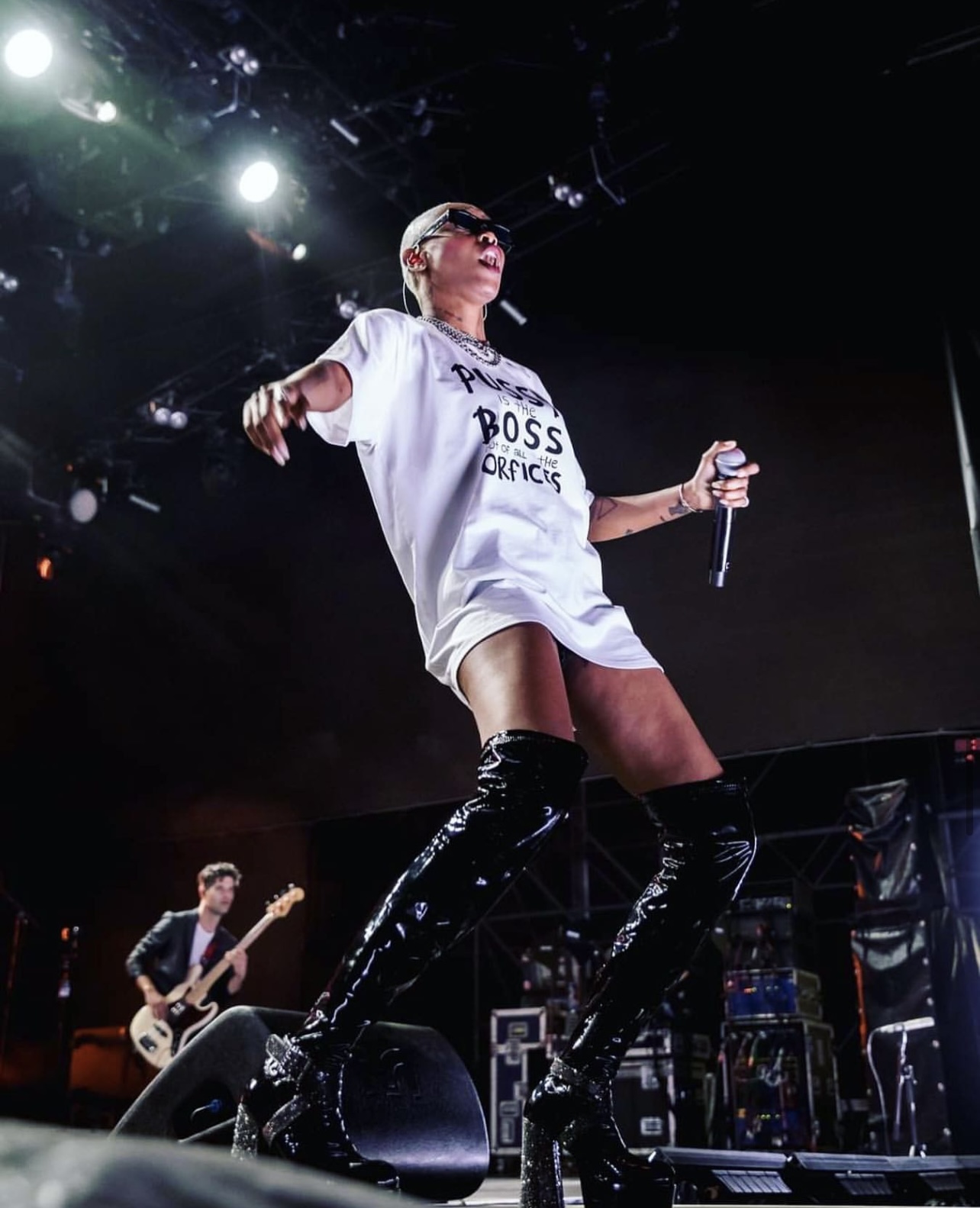
Continuing through a capricious year filled with historical overrulings, domestic terrorism hearings and more unparalleled threats to basic human rights, this generation of people power has reached a level of precedence I’d yet to see in my lifetime. This means that the work of artists and musicians is more crucial than ever, whether it’s inspiring change, drawing awareness or simply empowering the listener to make it through another day. The resistance and activism that has been cultivated through collective social movement action has remained consistent, thus creating a source of motivation to be an active part of social change.
A musician I was truly honored to share time with to make this interview come to life, Racquel Jones, has performed around the world as both a solo hip-hop musician and with legendary dub fusion group Thievery Corporation. She is an undeniable force on and off the stage, possessing a tenacity that emanates energy and power. Using her artistry to tackle social issues head-on, Racquel is intent on raising awareness as well as facilitating dialogue amongst her listeners.

Through mediums beyond music, Racquel’s statements on racism, misogyny, police brutality and American hypocrisy are mobilizing fans to self-educate and take action. Her need for open expression doesn’t end there – in March, Racquel launched an online blog that focuses on destigmatizing mental health to create communities of care. A launching pad for all the pillars CYM is founded on, this interview instills a much needed dose of hope, strength and courage – the three things we’ll need most to make this the world we want.
You’re a truly gifted lyricist – do you remember how old you were when you wrote your first poem or piece of music? Who or what inspired these first written expressions, whether they were poems or song lyrics?
Thank you. Writing poetry and music and doing art were very much a part of my childhood development as learning to walk and talk, so I don’t remember the first time I did any of it, but I do have a memory of my mom’s reaction to a poem I wrote and shared at church. I also remember drawing portraits of my family. We had to sit and watch the 7pm news together as a family, because as kids we had to be abreast with current affairs. I hated the news because it was all bad news. So I would draw my family members within that hour to pass the time. I also remember teaching myself to play the recorder from music books I found on our massive bookshelf, and composing my own music.
In addition to your music career, you’ve been involved in so many other things – modeling, pageantry, graduating art school, etc – what has been the most consistent lesson learned or advice you’ve gained from being involved in these various experiences?
Do everything you want to do, and it is very much possible to do so. To do all of it. My greatest fear about aging is having regrets of not doing the things I wanted to do, and not living to the fullest.
You’ve recently launched a blog that raises awareness of mental health by sharing your experiences publically. I used to think artists or platformed individuals had a responsibility to share their thoughts and what could be vulnerable feelings on different social issues, but I also respect that for some, their art is where they go to express those feelings without having to directly engage in a conversation about it. What made you feel like it would be worth it to tell these experiences, even though they are very intimate and personal?
First I’d like to say that I don’t subscribe to the impositions society places on creatives about what they should and shouldn’t do with their creativity and platforms. Our only obligation as creatives is to create and, as Nina Simone said, reflect the times. My reason for choosing to do the blog is my choice to use my platform for a greater good. I feel as though mental health is vastly neglected and stigmatized by society and as someone who’s diagnosed with bipolar2, suffers from a sleep disorder and severe anxiety, it’s the least I could do. I needed to talk about it in a serious way. Not the glamorized version of what dealing with mental illness is like. But the raw, uncomfortable, scary reality of it. If we can first remove the shame and stigma, then we can begin to have honest open dialogue to bring about the reform we so desperately need.
Not only do you express yourself through word, art and cinematography, but you also express yourself through fashion, making a statement simply hitting the stage before a word even comes out of your mouth. How important do you think fashion can be in sharing the human experience and relating to one another?
I consider myself a walking piece of art and every aspect of my being needs to reflect that. Fashion is also my creative expression and I’ve used it to make statements, I’ve seen it bring people together and also make people happy. Lately I’ve been using fashion and my stage performances as performance art to simulate this ongoing protest against misogyny and sexism. I have been wearing male suits with statements of protest painted across them as if they were placards. Every form of art is important and necessary, and fashion is an art form to me.
What does 2022 hold for Raquel Jones? Where do you see yourself in 5 years?
I don’t make long term plans anymore. I live one day at a time challenging myself to be the best version of myself each day.






One thought on “Breaking Stigma: Supporting Mental Health through Music, Art and Creativity with Racquel Jones”